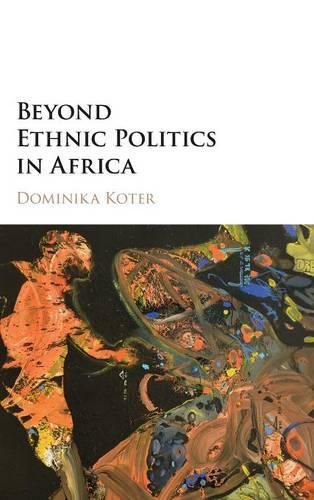Readings Newsletter
Become a Readings Member to make your shopping experience even easier.
Sign in or sign up for free!
You’re not far away from qualifying for FREE standard shipping within Australia
You’ve qualified for FREE standard shipping within Australia
The cart is loading…






Why do ethnic politics emerge in some ethnically diverse societies but not others? Focusing on sub-Saharan Africa, Dominika Koter argues that the prevailing social structures of a country play a central role in how politicians attempt to mobilize voters. In particular, politicians consider the strength of local leaders, such as chiefs or religious dignitaries, who have historically played a crucial role in many parts of rural Africa. Local leaders can change the electoral dynamics by helping politicians secure votes among people of different ethnicities. Ethnic politics thus can be avoided where there are local leaders who can serve as credible electoral intermediaries between voters and politicians. Koter shows that there is widespread variation in the standing of local leaders across Africa, as a result of long-term historical trends, which has meant that politicians have mobilized voters in qualitatively different ways, resulting in different levels of ethnic politics across the continent.
$9.00 standard shipping within Australia
FREE standard shipping within Australia for orders over $100.00
Express & International shipping calculated at checkout
Why do ethnic politics emerge in some ethnically diverse societies but not others? Focusing on sub-Saharan Africa, Dominika Koter argues that the prevailing social structures of a country play a central role in how politicians attempt to mobilize voters. In particular, politicians consider the strength of local leaders, such as chiefs or religious dignitaries, who have historically played a crucial role in many parts of rural Africa. Local leaders can change the electoral dynamics by helping politicians secure votes among people of different ethnicities. Ethnic politics thus can be avoided where there are local leaders who can serve as credible electoral intermediaries between voters and politicians. Koter shows that there is widespread variation in the standing of local leaders across Africa, as a result of long-term historical trends, which has meant that politicians have mobilized voters in qualitatively different ways, resulting in different levels of ethnic politics across the continent.